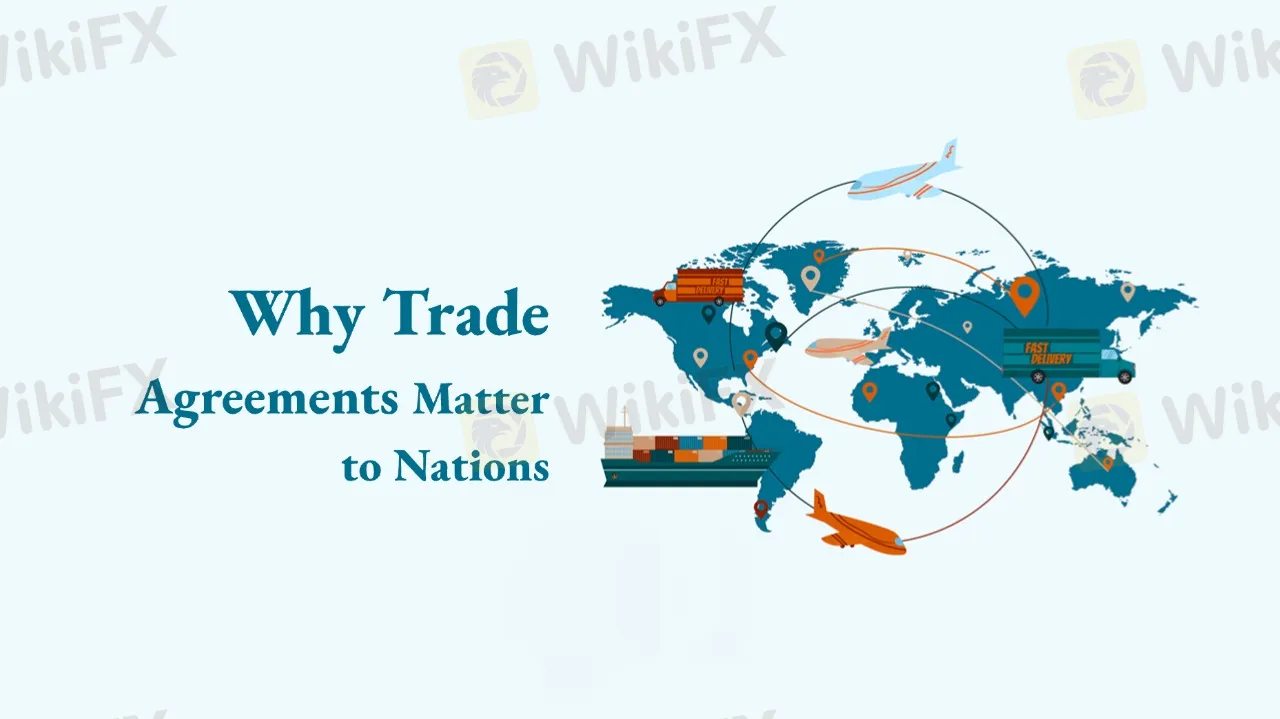简体中文
繁體中文
English
Pусский
日本語
ภาษาไทย
Tiếng Việt
Bahasa Indonesia
Español
हिन्दी
Filippiiniläinen
Français
Deutsch
Português
Türkçe
한국어
العربية
Why Trade Agreements Matter to Nations
Abstract:In today’s interconnected world, trade agreements serve as the foundation for stable and predictable international commerce.

They define critical elements like tariffs, quotas, product origin rules, and intellectual property protections, ensuring that goods and services can move across borders smoothly.
Without these frameworks, global trade would face costly delays, uncertainty, and disputes. Trade agreements allow countries to increase exports, attract foreign investment, and promote employment, making them powerful tools for economic growth.
Real-World Examples Speak Volumes
One notable case is the EU–Japan Economic Partnership Agreement, which offers tariff reductions for businesses on both sides. This has made European products like food, machinery, and vehicles more competitive in Japan, and vice versa.
As a result, bilateral trade volume has grown, while consumers enjoy more diverse and affordable choices. In the Pacific region, some developed nations grant unilateral trade benefits to developing countries, helping them access international markets and boost local economies.
Changes in trade policies can instantly reshape pricing, supply chains, and industry dynamics. A reduction in tariffs might stimulate exports, while new restrictions could hurt company margins.
Markets respond swiftly—stock indexes, exchange rates, and commodity prices often fluctuate based on trade developments. For e-commerce players, trade agreements are especially impactful, as lower landed costs mean better pricing power and broader market access.
Keeping up with trade agreements isnt just for governments; businesses and investors need to track these shifts closely to stay competitive.

Disclaimer:
The views in this article only represent the author's personal views, and do not constitute investment advice on this platform. This platform does not guarantee the accuracy, completeness and timeliness of the information in the article, and will not be liable for any loss caused by the use of or reliance on the information in the article.
Read more

Trade Fights Are Heating Up—What Happens Next?
Global financial markets have become increasingly reactive to even minor developments in international trade talks.

Juno Markets Upgrades to FYNXT PAMM
Juno Markets has successfully upgraded its managed account infrastructure by integrating FYNXT’s Percent Allocation Management Module (PAMM) system.

Italy’s CONSOB Blocks Sites of ITradingFX and NEX TRADE in Latest Crackdown
Italy’s Companies and Exchange Commission (CONSOB) has ordered Internet service providers to block access to nine unauthorized investment websites, including “ITradingFX” and “NEX TRADE,” as part of its ongoing effort to curb abusive financial services Consob.

2024 AI Ad-Blocking Performance Revealed
AI takes the lead in ad screening, blocking billions of harmful ads and safeguarding online safety worldwide.
WikiFX Broker
Latest News
Think Scams Won’t Happen to You? That’s Exactly What Scammers Count On
Currency Calculator


